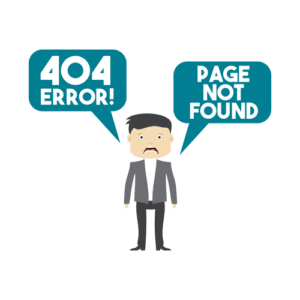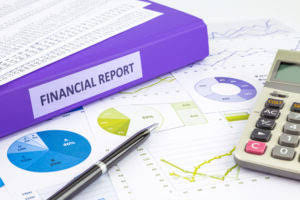Luke O’Neill writes for growing businesses in fintech, legal SaaS, and education. He owns Genuine Communications, which helps CMOs, founders, and marketing teams to build brands and attract customers. With everyone that goes into keeping your books up to speed, it might make sense to hire a qualified and accredited finance professional to help you. Getting your financials right can actually help your business deliver on that very passion that motivates you in the first place.

The top-tier plan is the Established plan, which costs $65 per month and also includes multi-currency reports, expenses, and project management. We chose QuickBooks Online as our runner-up because, while it isn’t designed specifically for restaurants, it offers an impressive lineup of features, including add-on payroll services. It’s also extremely easy to use for owners with no accounting or bookkeeping experience.
Utilize Financial Software
Pricing for QuickBooks Online starts at $30 per month and goes up to $200 per month with a 50% discount for the first three months. It offers plans for all types of operations, including sole proprietors, LLCs, partnerships, corporations, and nonprofits. Toast POS is a leading point of sale system with a suite of features that allow you to set up tableside order and pay options, manage your online menu, and create a no-contact guest experience. Underestimating your weekly income could make it look like your business is losing money when it’s not. Alternatively, overestimating your income could cause overspending because you weren’t working with an accurate budget. The best way to avoid either issue is to regularly record exact amounts of revenue.
What is the best accounting method for a restaurant?
While the accrual method is the best for restaurant, some tend to use cash-based accounting method. This can make your restaurant seem profitable while it may be making losses. To ensure you report the accurate financial status of the restaurant, always use accrual method.
Payroll covers everything from your staff’s salaries, through to their benefits like annual leave, insurance, and federal and state taxes. You must record precise amounts of money for every expense and all revenue. Rounding up or down by a few cents or dollars can add up over the course of a week or month and begin to affect your bottom line.
Step 1: Record Sales Through Your POS Daily
If you need more accounting, bookkeeping, or management services, you may consider using DAVO in addition to other accounting software for restaurants. The restaurant industry is known for tight profit margins, and without financial reporting, you are running your business blind. Analyzing your restaurant financial and operational data regularly is one of the keys to a healthy bottom line. By looking at a few essential reports, such as your profit and loss (P&L) statements and your prime cost (food and labor costs), you can accurately track your restaurant. It is designed specifically for the industry with beneficial features for restaurant owners.
- This integration gives you a connection between sales and your general ledger and accounts payable.
- It also offers other affordable monthly plans, and some of them come with free trials.
- Founded in 2015, ZipBooks is simple accounting software that can be used for any industry.
- ZipBooks offers a tiered pricing system; the first tier is Starter and is free, while the next tiers are $15 per month, $35 per month, and custom-priced (for the top-tier offering).
- While bank reconciliation can be time consuming, it is essential to have a full picture of your operations.
It’s not solely made for the restaurant industry but has helped many restaurant owners. It can also be integrated with over 1,000 other programs, including accounting systems, vendors and inventory companies, and payroll companies. Founded in 2014 as an automated system for invoice processing and accounts payable, Plate IQ is for both beginner and advanced bookkeepers and accountants, as well as small and large establishments. Plate IQ is used by multiple industries, including restaurants, restaurant accounting firms, groceries, and hotels. Modern POS systems can now automate tracking daily sales and provide you with a daily sales report.
Accounts payable
New and experienced restaurant owners can use it, whether they’re beginners or experts at accounting and bookkeeping. It can also be integrated with payroll companies or QuickBooks for those who need more thorough accounting services. However, if you need in-depth accounting services, you will need to integrate with QuickBooks or choose another restaurant accounting software. This statement is an effective tool for keeping track of your revenue, food costs, labor costs, and operating expenses. If this is the method with which you choose to organize your books and records, it’s advisable that you provide a detailed breakdown of all your costs and revenue for ease of understanding.
The next step is a POS system that is fully integrated with your back office and accounting. This integration gives you a connection between sales and your general ledger and accounts payable. One of the most fundamental pieces of bookkeeping is tracking your daily sales and entering them into your accounting system. Daily sales can be broken down several ways, but probably the most important breakdown is cash and credit sales. You can also breakdown sales by food vs beverage, or any number of metrics. Food cost is the ratio of a restaurant’s cost of ingredients (food inventory) and the revenue those ingredients create when you sell menu items.
How to Set up Accounts Payable
It can be used by owners with beginner-level accounting knowledge and those with a more advanced understanding of accounting. The Essential Plan costs $399 per location per month and includes accounting, scheduling, and inventory tracking features. The Professional Plan is the top-tier option, costing $489 per location per month.

It’s also easy to set up, can be integrated with different systems, and offers robust features specific to food truck owners. Released in 2012, Restaurant365 is a cloud-based software solution designed specifically for restaurant owners. It offers a comprehensive platform to meet the needs of restaurants of all sizes, as well as restaurant bookkeeping owners ranging from beginners to experienced bookkeepers. Do some research before picking an accounting software for your restaurant. Depending on the software, you can do other things such as manage payroll, sales reports, and methods of payment. If you choose to do your payroll in house, it’s wise to automate the process.
Accounting Firms
With organized financial practices and relevant, sophisticated reporting, bookkeeping can help you create a strong foundation for your business decisions. Bookkeeping involves day-to-day finances and budgets, but effective bookkeeping practices also can help you make operational decisions about food, labor, and overhead costs. Founded in 2015, ZipBooks is simple accounting software that can be used for any industry. It’s not restaurant-specific, so you will need to set up any customizations that you require. It’s best for restaurant owners who are looking for budget-friendly software. The software helps balance your books so you can spend time doing other things for your restaurant.